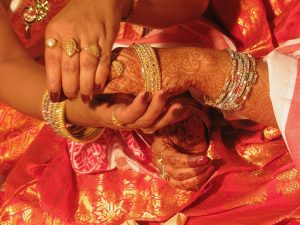The Assam government has firmed up plans for enacting a uniform civil code (UCC). Chief Minister Himanta Biswa Sarma recently announced that the state cabinet had discussed the uniform civil code and polygamy and plans to combine the two issues to prepare a “robust legislation.”
Located in Northeast India, Assam is the third state in the country to embark on legislating a uniform civil code, i.e. a single set of laws governing personal matters for all religious communities.
In mid-February, Uttarakhand in north India became the first country to pass legislation on a uniform civil code and Gujarat followed suit. All three states are ruled by the Hindu nationalist Bharatiya Janata Party (BJP). Implementation of a uniform civil code has been an important item in the BJP’s agenda and has found mention in its manifestos in the general and state assembly elections.
Unlike Uttarakhand, which has banned polygamy while making it a civil offense, in Assam, polygamy would be considered a criminal offense. A draft bill to that end has already been prepared, Sarma said. An expert committee has compiled a report on the assembly’s competence to put an end to polygamy, and has included some 150 suggestions from across the state to end the practice.
The chief minister also hinted that if public consultation on the uniform civil code can be completed within two to three months, then a bill on the issue would be introduced soon in the Assam assembly. However tribal communities, comprising 12.45 percent of the state’s population, will be exempted from the code.
A uniform civil code means having a common law for all citizens of the country that is not based on religion in dealing with personal matters like marriage, divorce, inheritance, and adoption. A common civil code for the country will be decided by Parliament, but states can also come up with their own uniform civil codes with the assent of the president.
In India, personal laws are embedded in religious texts and customs. This has resulted in different civil codes for different religious groups. Hindu personal laws in India are based on acts such as the Hindu Marriage Act, 1955, and the Hindu Succession Act, 1956, derived from ancient texts. Muslims in the country follow the Muslim Personal Law, based on Shariah principles. The personal laws of Christians, Parsis, and Jews are governed by the Indian Succession Act of 1925, but with variations within each community on marriage, inheritance, and related issues.
In the Indian Constitution, a uniform civil code is included in the section dedicated to “directive principles of state policy,” which are guidelines to be followed by the government for the governance of the country. Article 44 states: “The State shall endeavor to secure for the citizens a uniform civil code throughout the territory of India.”
In 2018, the law commission said in a consultation paper that the uniform civil code was “neither necessary nor desirable at this stage.” Last year, the commission again sought suggestions on the subject from the public and recognized religious organizations.
Again, in 2021, the Delhi High Court made a case for a uniform civil code. It said, “The hope expressed in Article 44 of the Constitution that the state shall secure for its citizens Uniform Civil Code ought not to remain a mere hope.”
The issue received a boost last year when Prime Minister Narendra Modi argued in favor of the uniform civil code while addressing party workers in Bhopal.
This triggered protests from tribal communities in central and northeast India. The Nagaland assembly adopted a resolution to exempt the state from the uniform civil code. Mizoram followed suit with the same resolution. Tribal communities are in an overwhelming majority in both the states in the country’s Northeast.
Supporters of the uniform civil code argue that it will foster national integration and gender equality in the country.
In Assam, the uniform civil code is also being viewed as a measure to check the rapid increase in the size of the Muslim population in the state. According to the 2011 census, Muslims comprised more than 34 percent of the state’s population. The proportion of Muslims in Assam is the third highest among all Indian states and union territories.
A huge chunk of the community in Assam consists of Bengal-origin Muslims. Polygamy and child marriage are widely practiced customs among a section of the community and are believed to have triggered the increase in their numbers. The Assam government has already launched a crackdown on child marriages, resulting in the arrest of nearly 4,000 people last year.

































